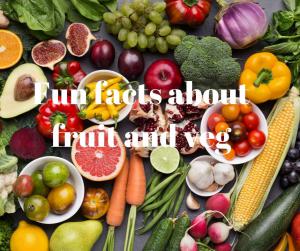By: Judy Davie - The Food Coach
 The other day I was chatting to a man who is committed to losing weight in the healthiest way possible. During the conversation he said " sweet potato is good and pumpkin is bad". "What do you mean? " I asked, " why do you think that's so?", and although he wasn't quite sure, I think somewhere along the line he'd learned that pumpkin was - to use an old fashioned language - fattening and sweet potato was not. The other day I was chatting to a man who is committed to losing weight in the healthiest way possible. During the conversation he said " sweet potato is good and pumpkin is bad". "What do you mean? " I asked, " why do you think that's so?", and although he wasn't quite sure, I think somewhere along the line he'd learned that pumpkin was - to use an old fashioned language - fattening and sweet potato was not.
And so for those of you who may share that opinion, let me see if I can help straighten that out.
First of all pumpkin is good, and during Autumn there's nothing better than tucking into a steaming hot bowl of pumpkin soup. Sweet potato is good too but it's different to pumpkin and there's no need to strike one off in favour of the other.
The idea that pumpkin is bad stems from early research conducted by Sydney University on the Glycemic index. It was ground breaking stuff as it identified which carbohydrate-rich foods raised bloods sugar levels more quickly than others. The research was used to write a best-selling diet book and the GI of foods continues to be used to help people with Type 2 Diabetes to regulate blood sugar levels and to help people to lose weight.
The theory on why we lose weight when we eat low GI foods is because high-GI foods break down quickly after you've eaten them, and may raise your blood sugar significantly. Insulin is a hormone released by the body to help stabilise high blood sugar levels and too much circulating insulin can prevent fat from being broken down and used as energy for the body
Back to pumpkin - When the GI of boiled pumpkin was measured by the Sydney Uni team, they discovered it to have a high GI of 75 which "in theory" means the carbohydrate in the pumpkin converts to glucose quickly during digestion. That single fact became the deterrent for many people who immediately swore themselves off pumpkin. But it's not the whole story. Although the carbohydrate component in boiled pumpkin may have a marked effect on your blood sugar, the carbohydrate component of a total serve of pumpkin is only 6% which means you would have to consume a large amount of boiled pumpkin to increase your blood sugar significantly. What people should be looking at when determining the effects of carbohydrate-rich food on blood sugar levels is the glycemic load (GL). The GL is a number that estimates how much the food will raise a person's blood glucose level after eating it and is calculated by multiplying the grams of available carbohydrate in the food times the food's GI and then dividing by 100, and in the case of pumpkin, the Glycemic Load is only 3.
And if that all sounds too complicated it all boils down to how much you eat and as we know moderation in all things is the key.
So what about sweet potato?
If you have to compare the two, and I don't really recommend that you do, I would say this. Pumpkin and Sweet potato are both great foods with different attributes which slightly outclass each other. While pumpkin has slightly fewer kJ's, more protein, potassium and a lower glycemic load, sweet potato outstrips pumpkin when it comes to beta-carotene, an antioxidant nutrient that may prevent the cellular damage associated with cancer, heart disease and premature aging
With that in mind I would say the best plan is to enjoy both at various time of the week.
Nutritional Analysis Pumpkin Vs Sweet Potato
| Food per 100g | Pumpkin | Sweet potato | | Energy (kJ) | 168 | 287 | | Protein (g) | 2.1 | 1.9 | | Carbohydrate (g) | 6.4 | 14.1 | | Fibre (g) | 1.2 | 1.8 | | GI | 75 | 44 | | Gl | 3 | 11 | | Beta Carotene (ug) | 2970 | 6770 | | Potassium (mg) | 345 | 250 |
For more information on the GI of foods visit www.glycemicindex.com
Comments
Be the first to comment!
|